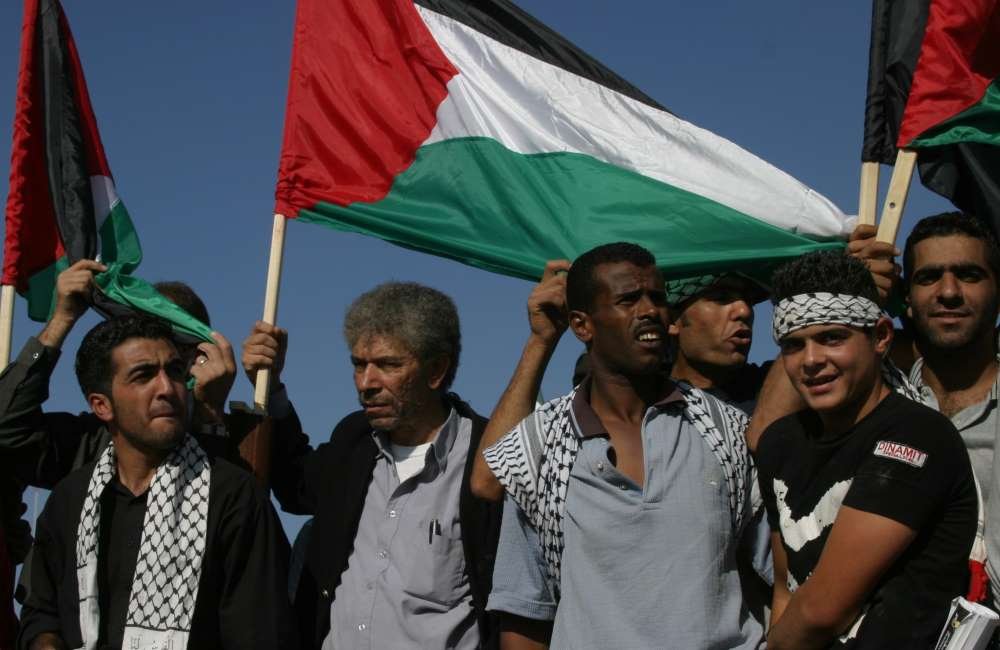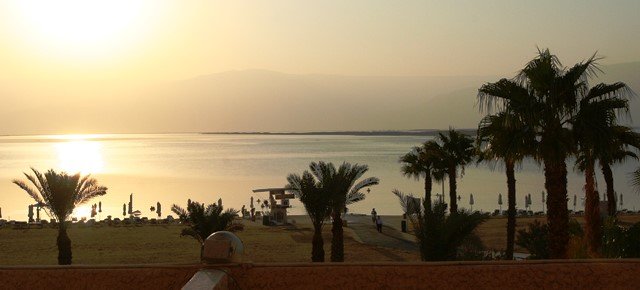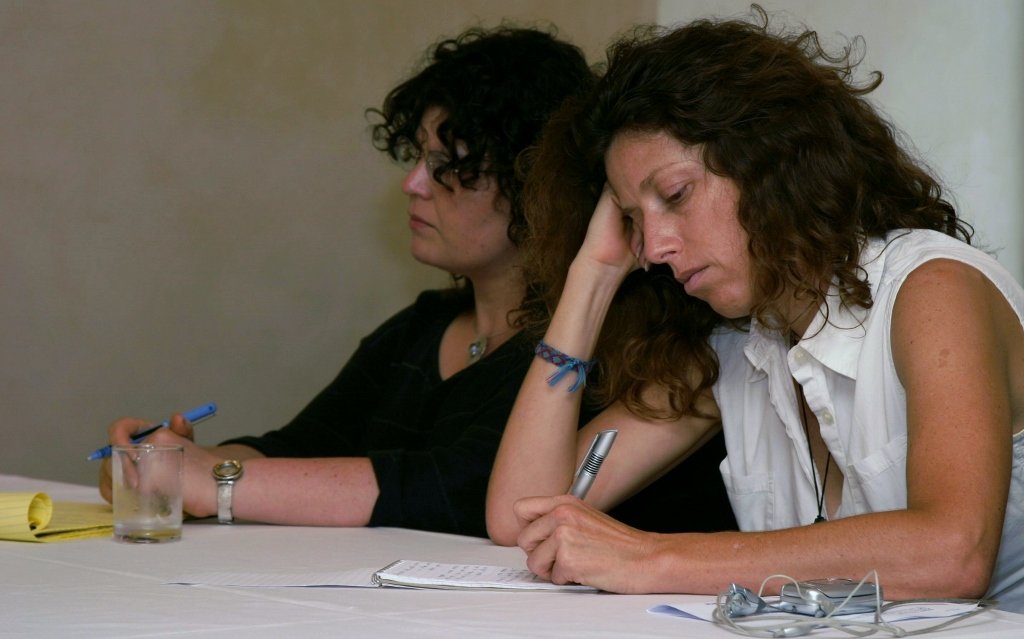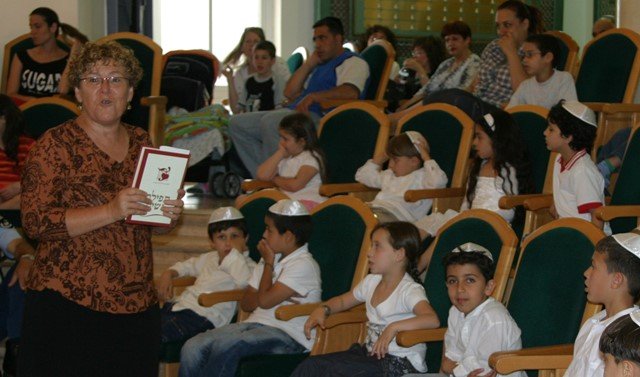Share This Story, Choose Your Platform!
Just after 11.00 on June 10th, two Israeli helicopters emerged in the deep blue June sky over Gaza City und fired seven rockets. Target of this military attack was Abdel Aziz al-Rantisi, spokesman and media star of the radical Islamic Hamas Movement whose Mitsubishi Pajero immediately went up in flames. Immediate victims were three dead and 30 wounded Palestinians – along with, perhaps, the “roadmap to peace” which is considered in the Western world to be the only alternative to further shedding of blood in the Middle East. Dr. Rantisi got away with light splinter wounds, his son was seriously injured.
Who is the man for whose sake Israel dared to put at risk the dawn of peace in the Middle East after the long night of the intifada?
Abdel Aziz al-Rantisi was born in October 1947 in Yubna, which today lies in Israel, near the city of Jaffa. In 1948 during Israel’s War of Independence his family fled to the Gaza strip. There Abdel Aziz grew up in the refugee camp KhanYunis.
In the seventies Abdel Aziz Rantisi trained to be a pediatrician at the University of Alexandria in Lower Egypt. During his degree course he came into contact with the Ikhwan, the radical Islamic Moslem Brotherhood, which had been founded in 1928 in Egypt and has been active since the 1940s in the areas of the British Mandate of Palestine and its successor states.
In 1976 he returned from Egypt to Gaza, officially joined the Ikhwan and found work in the Islamic University of Gaza after its establishment in 1978. In 1983 Rantisi was dismissed by the Israelis from his job as head of the childrens’ department of the hospital of Khan Yunis. Following his dismissal he was arrested on various occasions by the Israelis. The father of six lived in recent years in Gaza city, in the part known as Sheikh Radwan.
In August 1988 he founded together with Sheikh Ahmed Yassin, Abdel Fattah Dukhan, Mohammed Shama, Ibrahim al-Yazour, Issa al-Najjar und Salah Shehadeh, the “Harakat al-Muqawamah al-Islamiyya”, or the “Islamic Resistance”, shortened to “Hamas”. The Arab word “Hamas” means as much as “excitement”, “enthusiasm”, “zeal”, “courage”, or “heroic deed”. In the Hebrew Bible the word also appears – albeit with the meaning “act of violence”.
In December 1992 Abdel Aziz Rantisi was deported to Marj al-Zuhur in Lebanon together with 414 other Hamas activists. The pediatrician acted as a spokesman for these deported Islamists. In retrospect, Rantisi saw Marj al-Zuhur as the turning-point in the biography of the Hamas: “After that, Hamas emerged on the international arena.” Following his return, Rantisi was under Israeli arrest again until April 1997.
After his return to the limited freedom of life in the Gaza strip and to the political arena of the Middle East, Dr. Abdel Aziz Rantisi gained profile as the “face belonging to Hamas”. Whenever the radical Islamic Hamas Movement stepped onto the public stage, Rantisi was part of the show. His face was soon one of the familiar components of TV coverage coming from the Palestinian autonomous areas. For years the Hamas spokesman has been one of the most popular Palestinian leaders, if results of Arab opinion polls are to be trusted.
The media star justifies the suicide operations of Palestinian terrorists as “martyrdom operations”. The Hamas has unleashed 113 suicide attacks on Israel since 1993, since September 2000 there were 72. Right from the beginning these Islamists categorically rejected any attempt at an agreement with the “Zionist enemy”. According to one spokesman of the Israeli army, 227 Israelis were killed and 1,393 were wounded (some of whom will remain lifelong cripples) as a result of his attacks.
“This has nothing to do with terror”, was Dr. Rantisi’s defending explanation of the strategy of his Movement in January 1998 in an interview with the Arabic newspaper Kul al-Arab, “this is a response to Israeli terror – that of individuals and of the Israeli government – towards Palestinian civilians.” He went on to promise, “As soon as Israel’s aggressive killing, starving and arresting policies, and their building of settlements, ceases, we will put a stop to our operations against Israeli civilians.”
From the western point of view one could misunderstand such statements as the demand to the Israelis to withdraw to the ceasefire borders of 1967. But the Hamas spokesman delivered an unmistakable rebuttal to any idea of a compromise: “The whole land of Palestine is part of the Islamic faith, and the Caliph Omar bin al-Khattab declared the whole land as the property of Moslems.” The forefinger raised in warning was also aimed at fellow citizens who would be open for compromises: “That’s why neither individuals nor groups of people have the right to sell it or give it up.” It is no coincidence that Hamas began its military career at the end of the 1980s by murdering mainly Palestinians who were suspected of being willing to negotiate with Israel.
In July 2000 Abdel Aziz Rantisi was arrested for the first time by the Palestinian Autonomy authorities for labelling the Palestinian-Israeli talks in American Camp David as an “act of treason”. The Hamas leadership, represented by Rantisi, consistently rejected every Middle East peace initiative, including the Road Map and the latest summit in Jordanian Aqaba.
Despite all this, Dr. Abdel Aziz Rantisi is actually thoroughly open for a “peaceful” solution to the Middle East conflict. For example, in the middle of August 2002 he called on Israelis, in (what he presumably considered to be) conciliatory tones to return to their lands of origin from which they had immigrated to Israel in the course of the past 150 years. Only a Holy Land “cleansed of all Jews” excepting perhaps a small Jewish minority subjected to Islamic Law, can in his opinion enjoy peace.
Foreign observers interpret as a further conciliatory gesture the repeated offer by the Hamas of a “hudna”, or “ceasefire”. As recently as the days just before the Israeli attack on Abdel Aziz Rantisi, the Hamas had negotiated this possibility with the new Palestinian government under Prime Minister Mahmoud Abbas. But a “hudna” is not good enough for the Israelis, because they know very well that the Islamic theology held by the Hamas Movement demands the cancellation of any ceasefire as soon as the unbelieving opponent and occupant of Islamic soil is weakened and appears ripe for conquest.
In Israel the military attack against the outstanding political head of Hamas ist being sharply criticized by the Opposition. The government should, they say, use force against the military wing of the movement, the Izz a-Din al-Qassam Brigade, while at the same time negotiating with their political representatives. That’s why the political representatives, even of such radical organizations as Hamas which are forbidden to exist in Israel itself, were considered to be largely immune.
As far back as in August 2002, Rantisi’s spiritual father, Sheikh Ahmed Yassin (the one who sits in a wheelchair) had emphasized in an interview with the Saudi-Arabian newspaper al-Shark a-Awsat the strong link between the military and political establishment of the Movement: “When we make a decision on the political level and inform the military wing of this decision, it is then committed to our decision.”
Today’s attack was the Jewish State of Israel’s military and responsible political leadership’s way of taking this statement seriously. And only on this basis – that is, by having direct right of command over the terrorist units of the Izz a-In al-Qassam, could Dr. Abdel Aziz Rantisi, just hours after surviving the rocket attack, and speaking straight from his hospital bed, threaten the Israeli people with bloody revenge.
Translation by Nicola Vollkommer






















